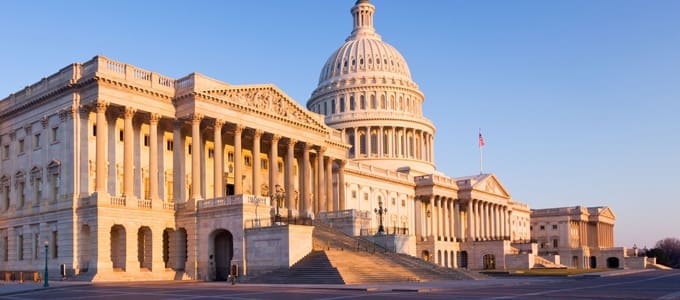The Senate on Saturday unanimously passed legislation to enact a long-stalled international treaty that would govern oil drilling along the U.S.-Mexico border in the Gulf of Mexico, but the popular measure faces an uncertain future in the House. Lawmakers on both sides of Capitol Hill widely agree on the substance of the bill, which would implement the U.S.-Mexico pact that sets a framework for oil and gas development along the countries’ maritime boundary in the Gulf. The hydrocarbon agreement, first signed in February 2012 and ratified by Mexico two months later, would encourage commercial unitization agreements where oil and gas on both sides of the boundary are effectively divided up. But the House and Senate are at odds over whether to include an unrelated provision to exempt publicly traded companies from abiding by a congressional mandate that they disclose what they pay other countries to harvest oil and natural gas. A House-passed bill to enact the treaty includes language to exempt oil and gas companies from complying with a Securities and Exchange Commission payment reporting rule. But the Senate measure, which passed by unanimous consent, without debate, on Saturday, does not have the SEC waiver language.
Alaska Sen. Lisa Murkowski, the top Republican on the Energy and Natural Resources Committee, who co-sponsored the bill, said the measure “establishes important ground rules for developing the oil and gas reservoirs along our shared maritime border with Mexico. In addition to opening up nearly 1.5 million acres of the outer continental shelf, it also ensures that any exploration along our maritime border adheres to the highest degree of safety and environmental standards,” Murkowski added. “I consider that a win-win for both countries.”It now is up to House Republican leaders whether to take up the stripped-down Senate version and pass it, sending it to President Barack Obama for enactment. The House also could effectively insist on the version with the SEC language, or force a conference where members of both chambers meet to hammer out a compromise version. Sen. Ron Wyden, D-Ore., the energy committee chairman and the lead sponsor of the bill, has previously said that insisting on the SEC language could sink the whole measure. The risk, he said, is that Congress will “get bogged down in matters that are simply not relevant to the agreement.” It was unclear how House leaders respond. “We’re hopeful that a solution will be worked out between the House and Senate versions of the bill to expand energy development in the Gulf of Mexico that will create new American jobs, lower energy prices, and generate tens of millions of dollars in new revenue,” said Michael Tadeo, a press secretary for the House Natural Resources Committee.
Oil industry leaders have so far been successful in fighting the foreign payments disclosure requirement in court. After a federal district judge ruled against an SEC rule mandating the payment reporting, it was sent back to the commission to redo. The Dodd-Frank financial bill required the payment disclosure but left it up to the Securities and Exchange Commission to write the details. A moratorium on drilling and production in the boundary area is set to expire in January 2014. After that, Mexico’s Pemex can begin developing oil and gas resources along the boundary area, without the framework established by the U.S.-Mexico hydrocarbon agreement. The Bureau of Ocean Energy Management has said the areas covered by the treaty could contain 172 million barrels of oil and 304 billion cubic feet of natural gas.
SOURCE: By Jennifer A. Dlouhy, FuelFix.com





